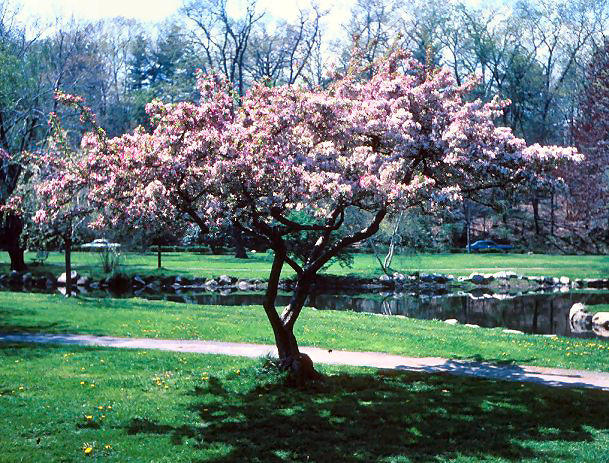| Botanical Name: Malus cultivars | |
| Common Name: Flowering Crabapple |

-
Anatomy
-
Culture
-
Design
Plant Type
Tree
Height Range
12-25'
Flower Color
Red, White
Flower Season
Spring
Leaf Color
Bronze, Dark Green, Purple
Bark Color
n/a
Fruit Color
Yellow
Fruit Season
Winter, Summer, Fall
Sun
Full
Water
Medium, Extra in Summer
Growth Rate
Moderate
Soil Type
Loam
Soil Condition
Average, Rich, Well-drained
Soil pH
Neutral
Adverse Factors
n/a
Design Styles
English Cottage, Formal, Japanese
Accenting Features
Espalier, Showy Flowers
Seasonal Interest
Spring, Summer, Fall
Location Uses
Background, Lawn, Walls / Fences, Walkways
Special Uses
Mass Planting
Attracts Wildlife
n/a
Information by: Stephanie Duer
Photographer:
Photographer:
-
Description
-
Notes
With a seemingly unlimited selection of size, form, flower color, and fruiting character, flowering crabs are the quintessential small tree for the urban, water-wise landscape.
Crabapples are well adapted to many soil types but appear to do best in clay loams and sandy clay loams. Soil pH should be slightly acidic to neutral to slightly alkaline (6.0 to 8.0). Plant in full sun, where nearby trees will not shade them excessively. Water regularly and deeply. If pruning is necessary, do so selectively and avoid shearing (see Guides).